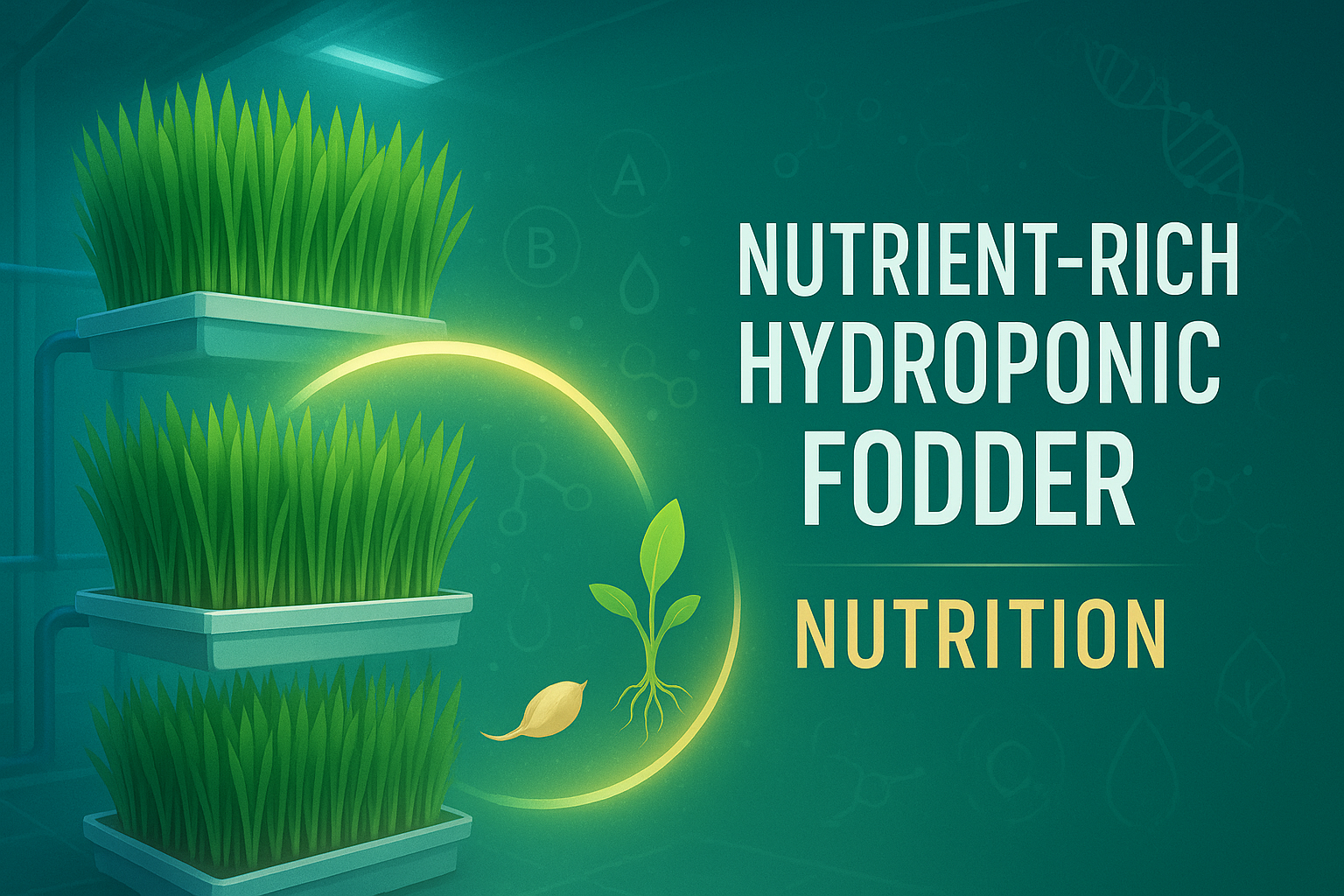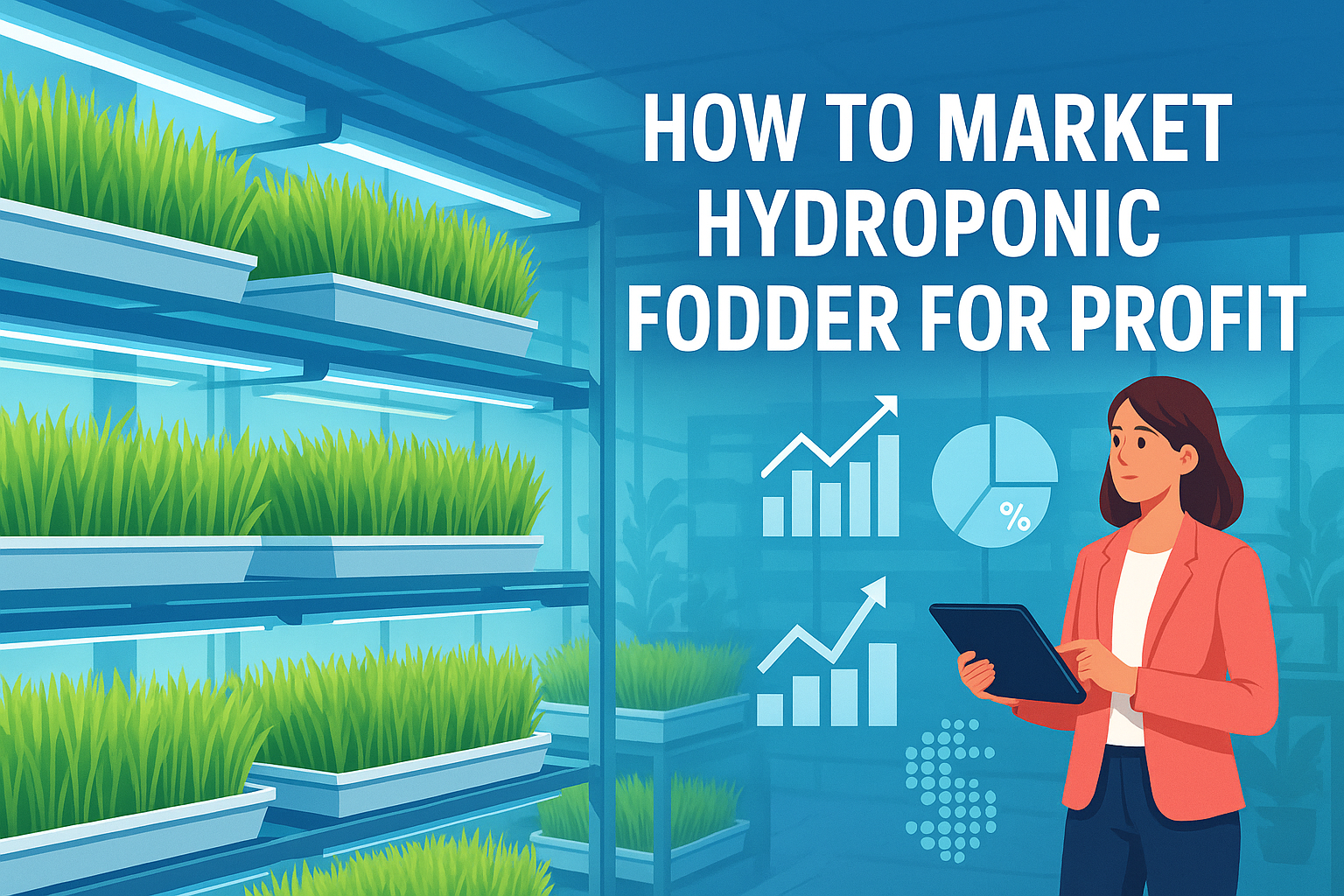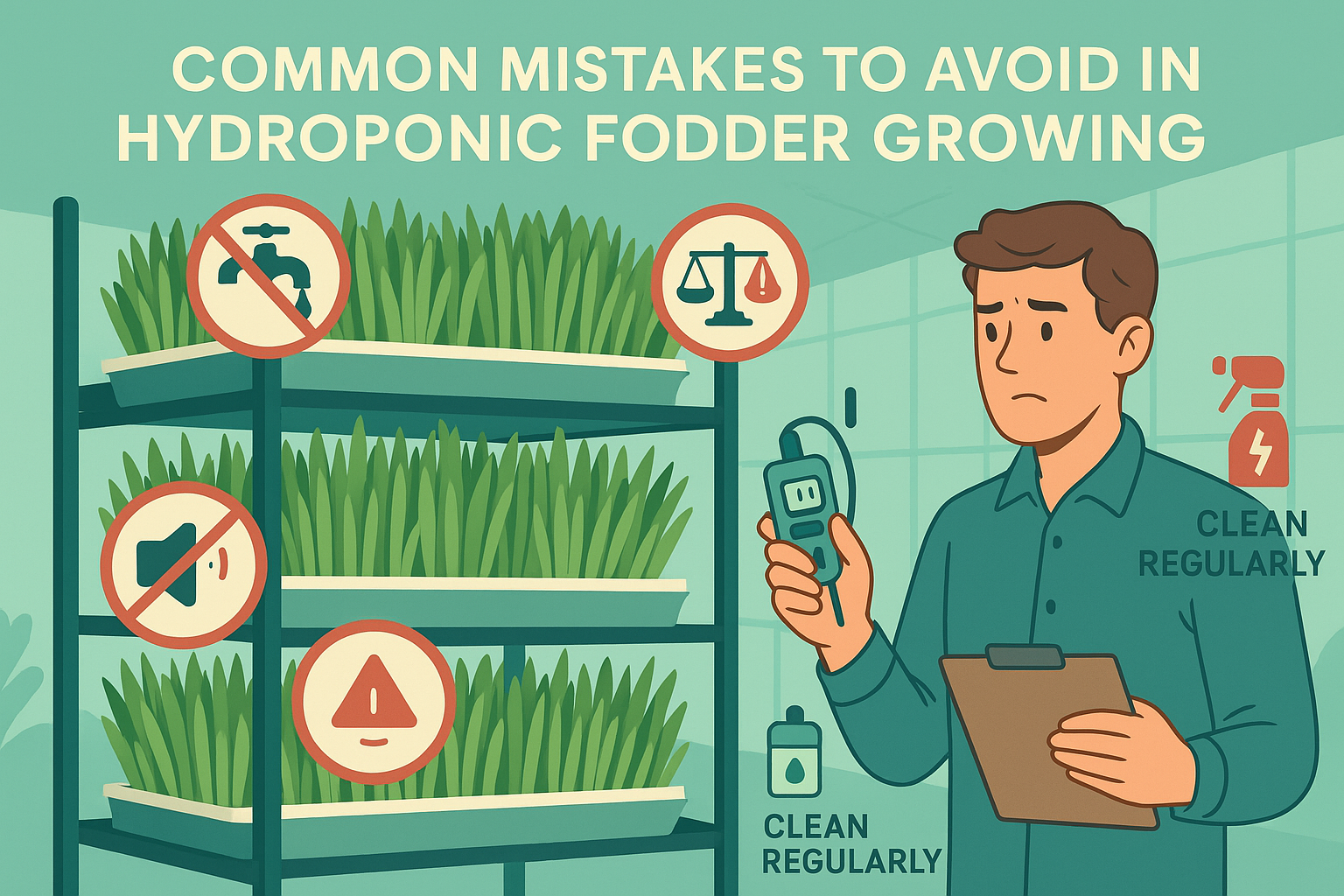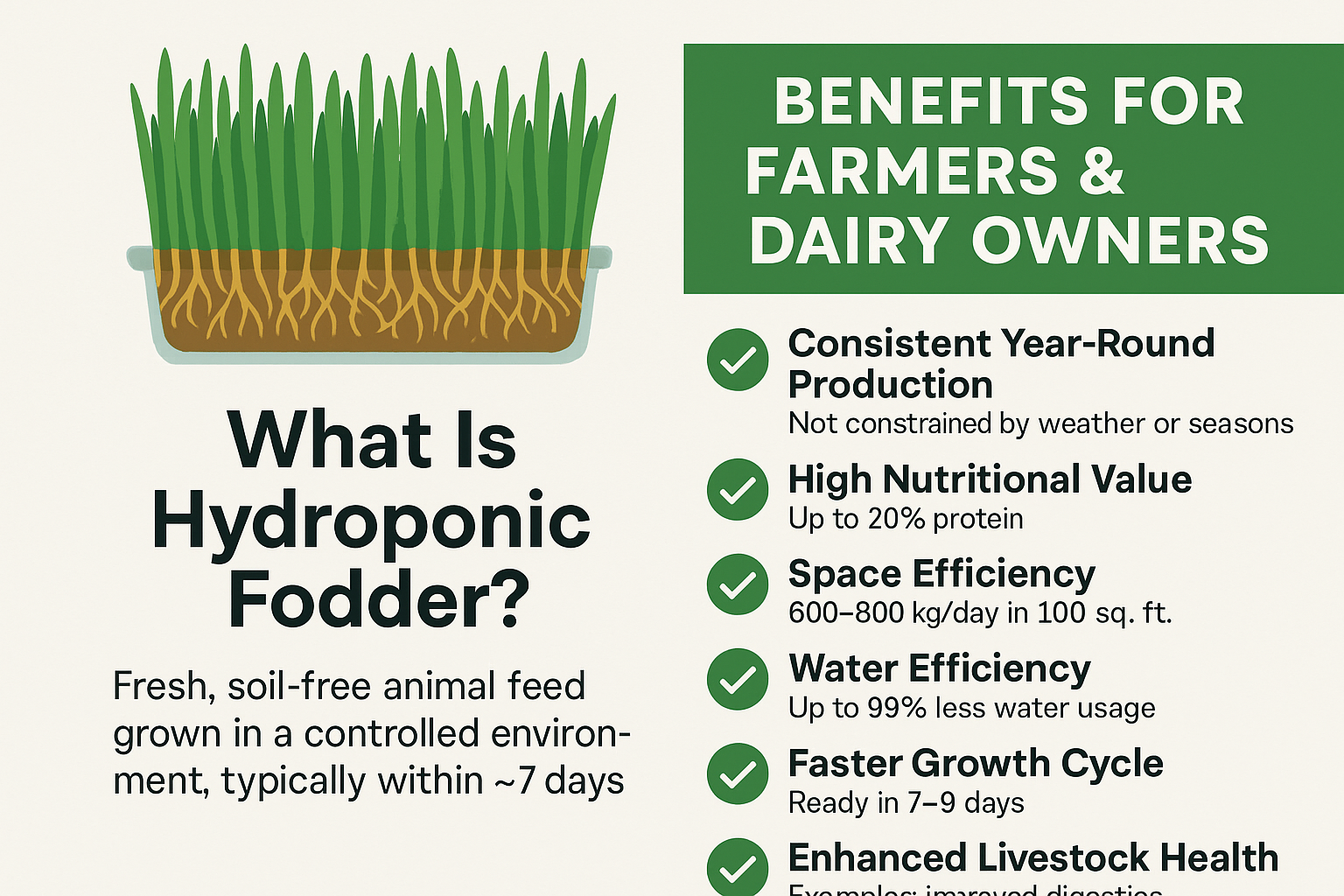Hydroponic fodder is more than just a fast-growing feed — it’s a nutrient powerhouse. When grains like barley, maize, or wheat are sprouted in a controlled hydroponic system, they undergo biochemical changes that make them more digestible and nutrient-rich than their raw seed form. In this blog, we’ll explore the science that makes hydroponic fodder so valuable for livestock health and productivity.
1. Germination Boosts Nutrient Levels
When seeds germinate, enzymes are activated, breaking down stored starch into simpler sugars.
Key effects:
- Increased vitamin content, especially vitamins A, C, and E.
- Higher B-complex vitamins, essential for metabolism.
- Release of antioxidants that support animal immunity.
2. Higher Digestibility
- Dry grains have a digestibility of around 30–40% for ruminants.
- Hydroponic fodder reaches up to 80% digestibility because complex carbohydrates break down into easily absorbable sugars.
- This means more nutrients are available for milk production, weight gain, and energy.
3. Enzyme Activity
Sprouting increases enzymes such as amylase and protease, which:
- Help break down starches and proteins.
- Reduce digestive stress on animals.
- Improve nutrient absorption in the small intestine.
4. Protein Quality
Hydroponic fodder typically contains 16–20% crude protein, depending on the seed type. More importantly, germination enhances the amino acid profile, including lysine and methionine, which are crucial for muscle growth and milk protein synthesis.
5. Mineral Bioavailability
The germination process reduces phytic acid — an anti-nutrient that blocks mineral absorption. As a result, minerals like calcium, magnesium, and iron become more bioavailable to the animal.
6. Chlorophyll Content
The green shoots are rich in chlorophyll, which:
- Acts as a natural detoxifier.
- Improves oxygen transport in the blood.
- Supports overall animal vitality.
7. Water Content & Hydration
Hydroponic fodder has a moisture content of around 80–85%, making it an excellent hydration source, especially in hot climates.
Conclusion
The science is clear — hydroponic fodder transforms ordinary seeds into a nutrient-dense, easily digestible superfeed. By improving vitamins, enzymes, protein quality, and mineral absorption, it gives livestock a health and productivity boost that traditional dry feed simply can’t match.











Leave a Reply